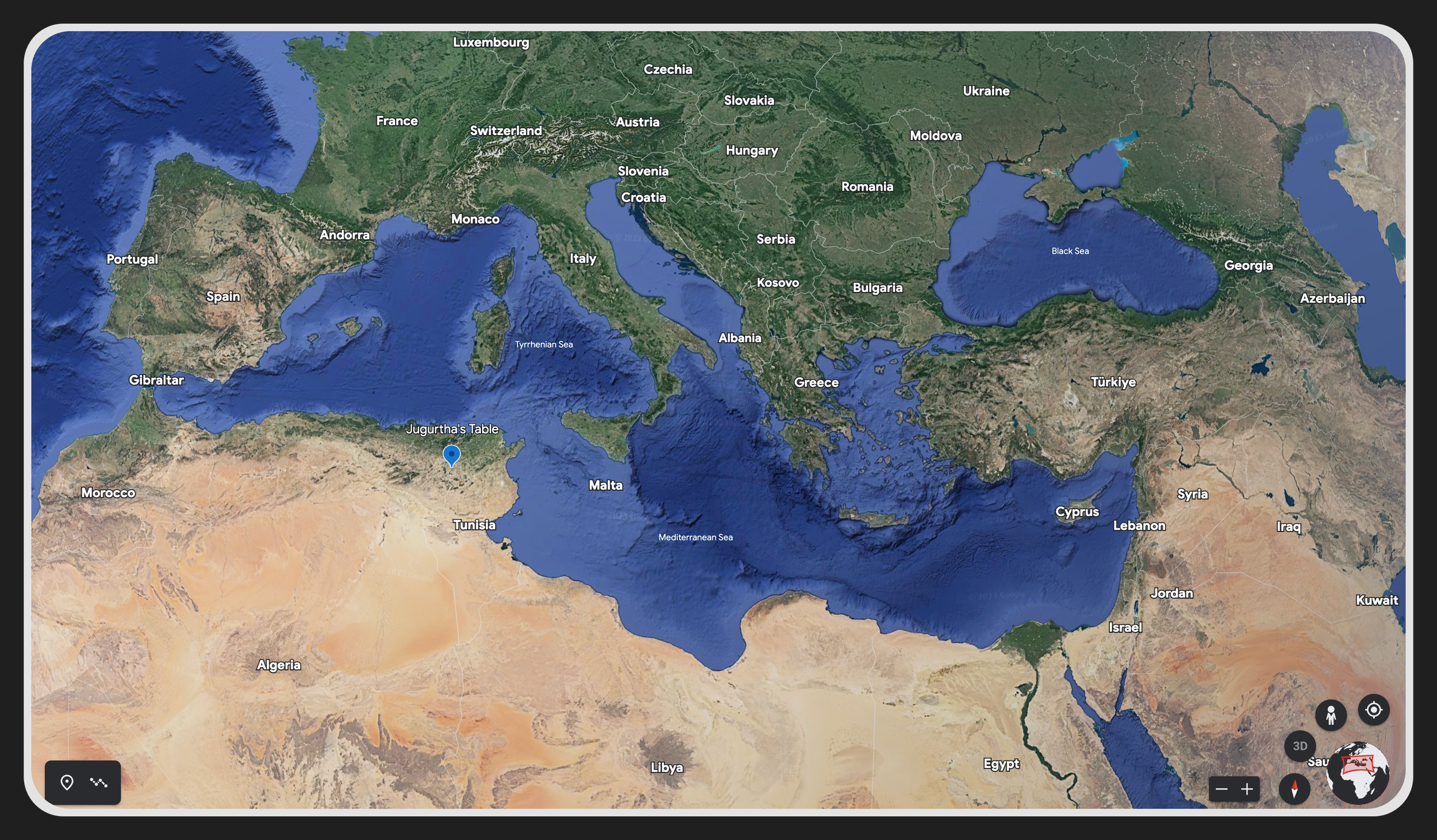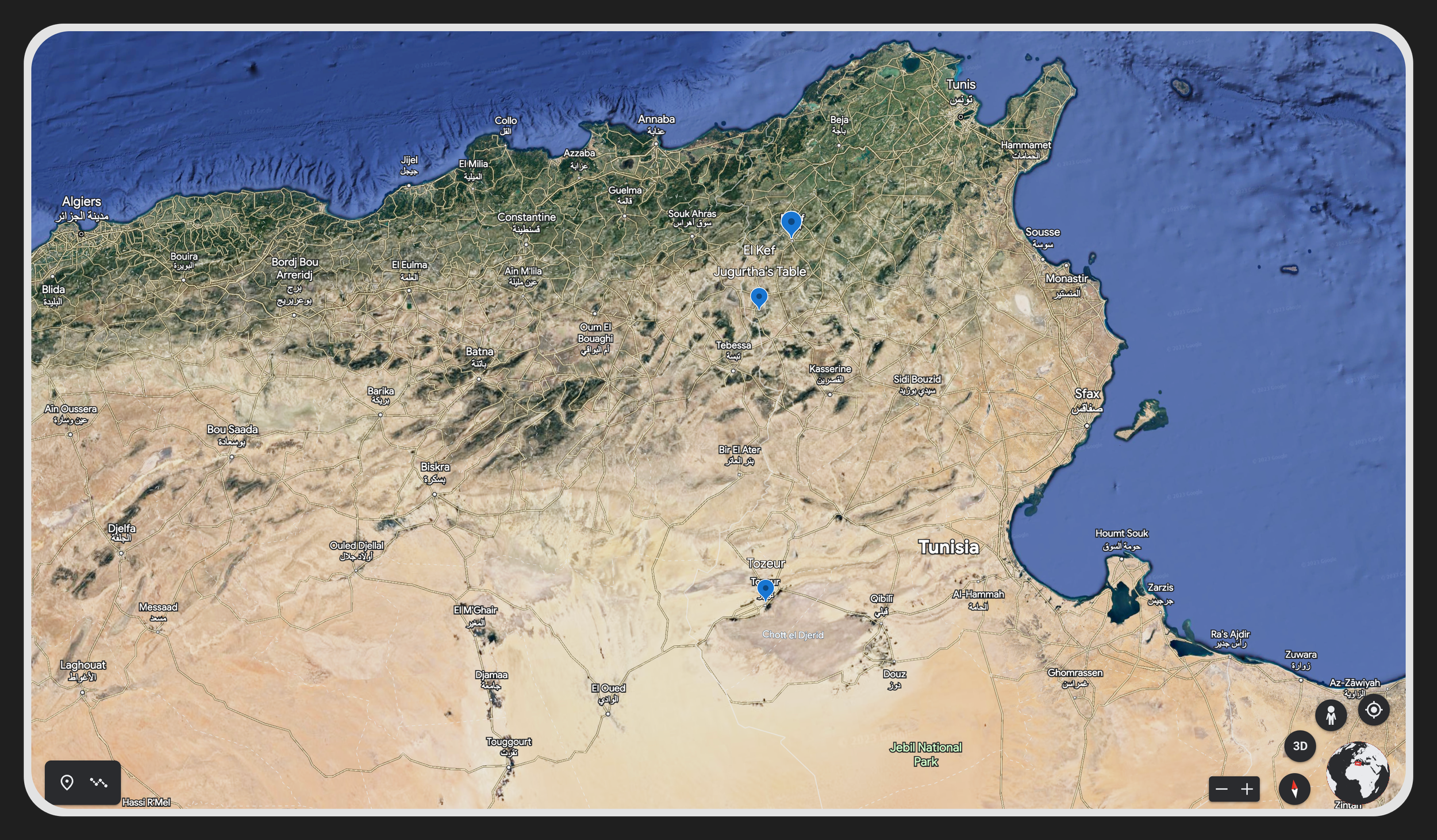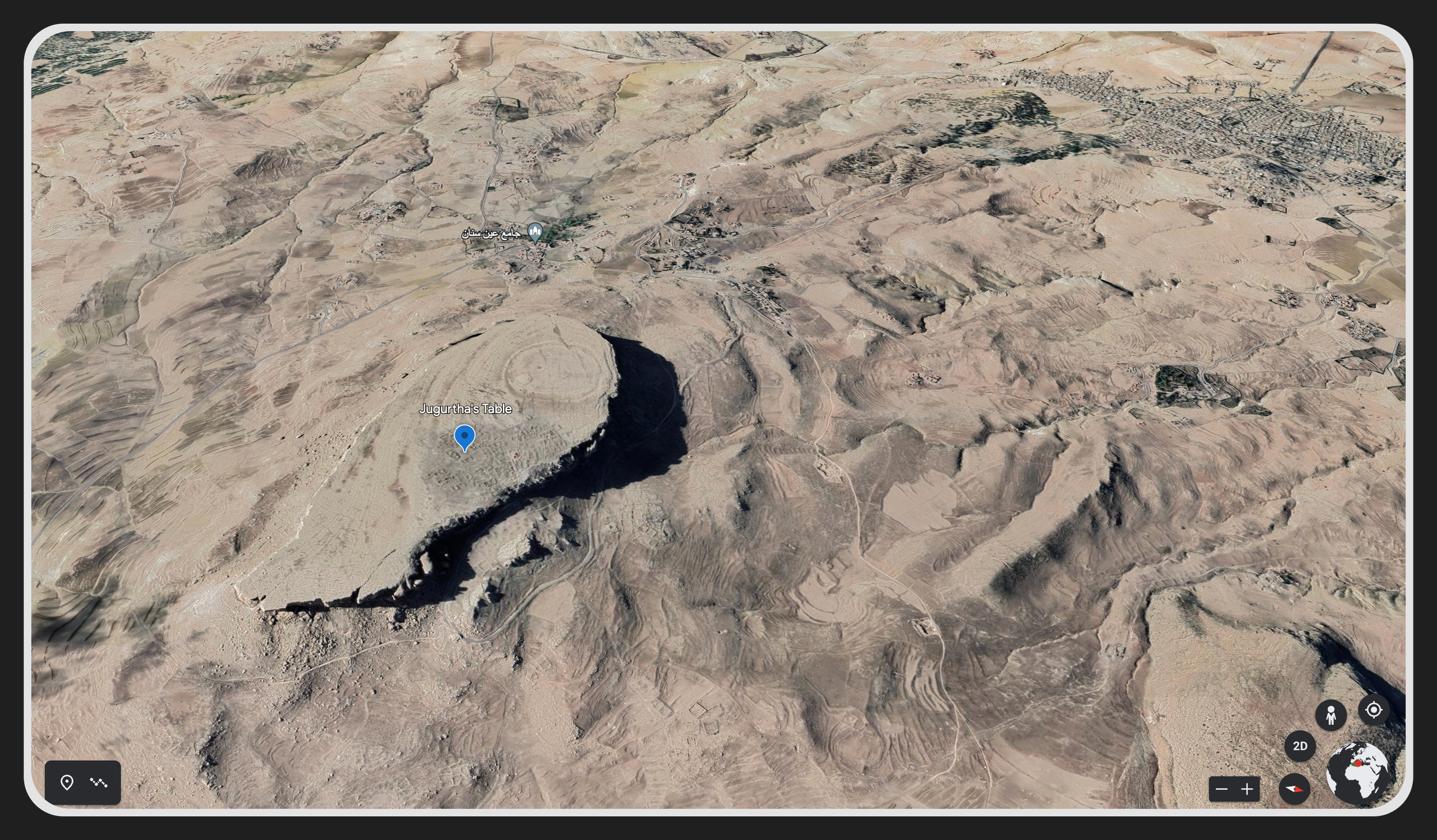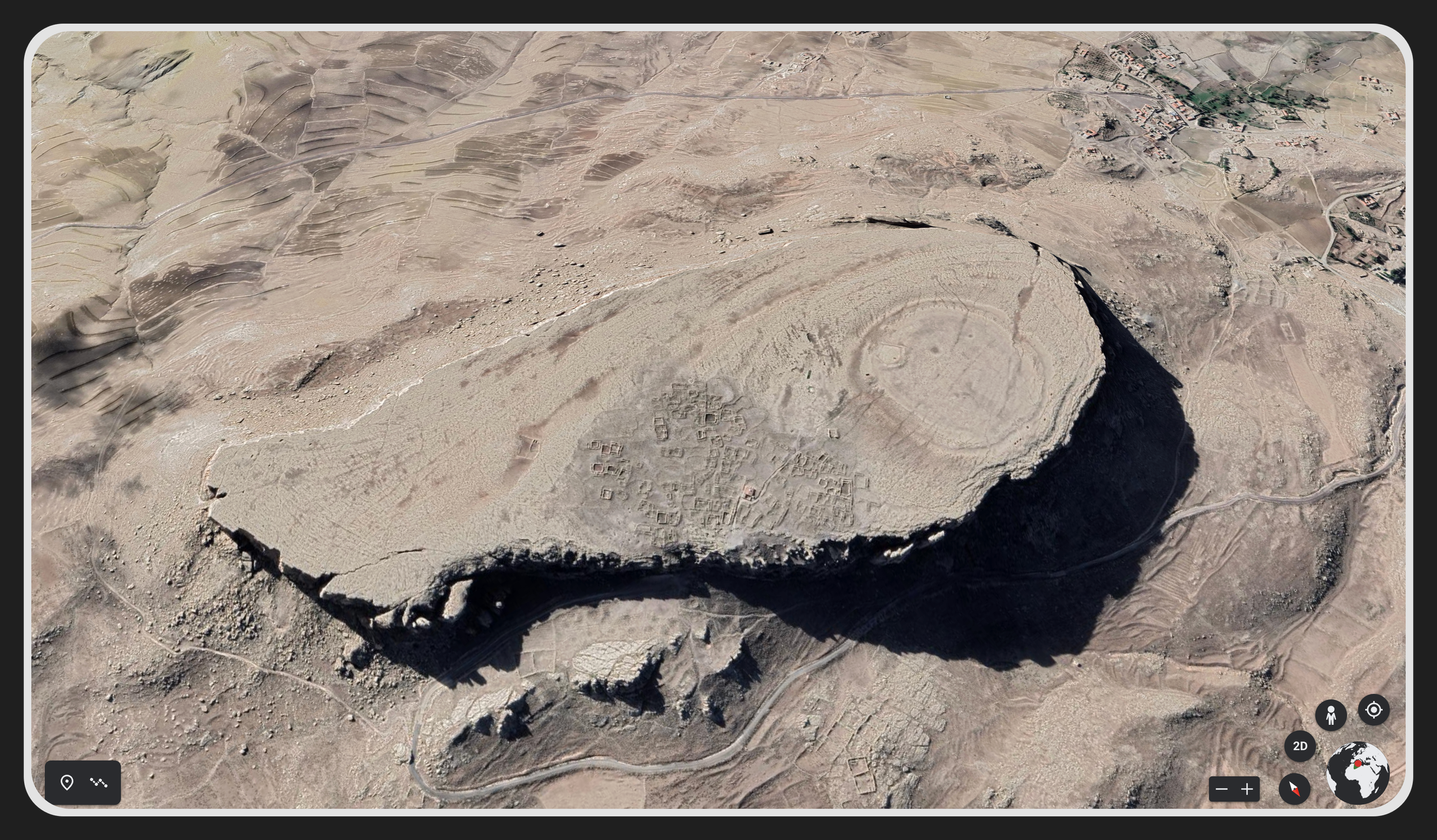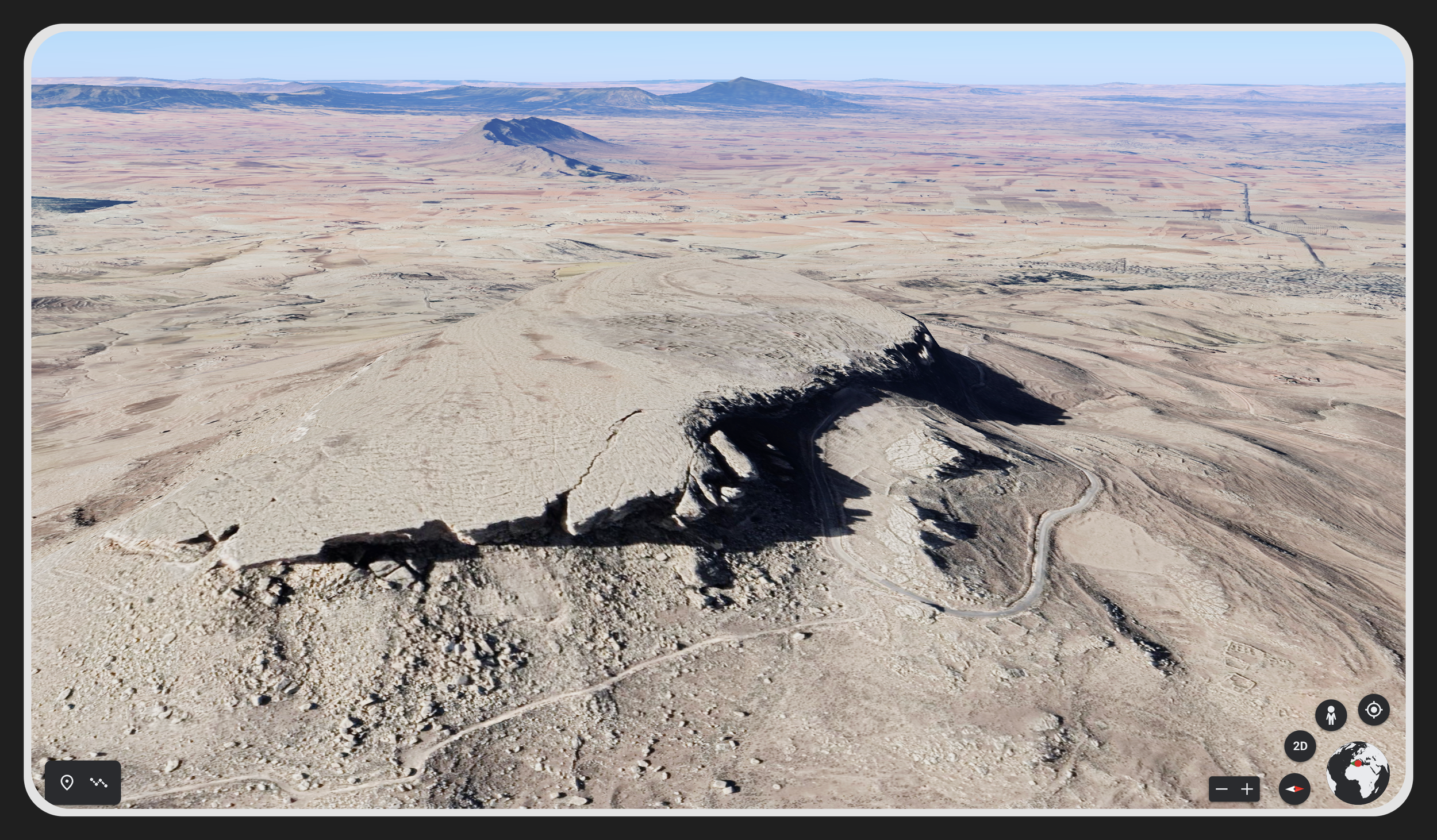172 - Jugurtha’s Table For Two (Ain Senan, Tunisia)
WITH EL KEF IN THE REARVIEW, we forged ahead to Jugurtha's Table, a plateau mountain in Tunisia’s central west. Theme of the day? Richie and Leslie talk to the nice policemen. We were stopped seven times (traffic roundabouts were a favorite hangout) in a single day, and even followed at one stage. Some wanted to check passport and registration. Some just wanted to say, “Salamo Alaykom.” One ambitious police dude executed a pointless check of our trunk. Another asked me about soccer. In Kalaat es Senam, we had to register with the national guard. After leaving Jugurtha, we were tailed out of town, then stopped about fifteen minutes later at a checkpoint.
Why the hubbub? We assumed it was related to the area's proximity to the Algerian border and illicit smuggling operations. This, coupled with a “tourist safety priority”, might explain Big Brother’s nose up our cabooses. I’m guessing the local authorities (national guard and police) were wary of two Americans wandering alone. If I were a secret agent, I’d have to admit a cute redhead and a Fiat Punto make for one hell of a disguise/cover story. Bond… James Bond.
“The Tableland is a geologic feature known as an inverted relief. Millions of years ago, the hard limestone top of the mesa was actually the bottom of a valley. Over the years, the softer surrounding hills were worn away by erosion, leaving the Tableland – and former low point – as the highest point on a plain. Local drinking water comes from the Ain Senan spring at the edge of the Jugurtha Tableland.” (Wikipedia)
We’d read the hike to the Table would take two hours from Ain Senan, but discovered a road to the staircase leading to the top. On the drive up, we were barred by local children looking to extort us. They asked for money, pens, or chocolates. We gave them Tic Tacs. Handing out cash is never a good idea. Sets a terrible precedent. Our modest gift mollified the mob, so we moved forward.
The parking lot betrayed the condition of the road—it was stocked with 4WD vehicles. Our Punto pulled above its weight class. Yeah, Punto! From the car, it was a brief five-minute walk to the summit. We mostly had the place to ourselves and spent it sauntering around the plateau’s edge. The area was much larger than expected or felt so. It was the historical last stand against Roman rule by the Numidian King Jugurtha from 112 to 105 B.C. He used the impenetrable fortress as a base from which to conduct operations. Shit didn’t work out for him… frowny face.
A Tunisian visit wouldn’t be complete without a stop at Jugurtha. The views are outstanding, the vibe one of end-of-the-earth desolation. It would likely be hell during the summer, but in October, the winds (at least on that day) were borderline chilly. It’s also perfect for escaping the undead or just about anything you might want to escape. Anyone looking for a great camping destination would be hard-pressed to locate a more ideal location. Go.
After a couple of hours exploring Jugurtha's pseudo-apocalyptic theme park, we remounted the Punto and moved on, but not before slipping the resident parking lot “guardian” a few dinar for watching the vehicle. I believe said guardian instructed us to sign out at the national guard post, but I can’t be sure. I saw this step as unnecessary. I’d informed the office we’d be there only a few hours. Besides, why sign out when you have an unmarked police escort follow you out of town? I blame Leslie. She’s fucking suspicious.
Our next destination was Tozeur, a city in southern Tunisia, on the edge of the Sa-HA-ra! This involved a day-long drive through Gafsa province and some seemingly Allah-forsaken territory. Excellent location for a prison. Makes sense. The government built some there. Yes.
Courtesy of Relive Tunisia
“Leaving Le Kef in the dust, we set out in search of Jugurtha’s Table: a flat-topped mountain west of Kasserine, close to the Algerian border. It was once used my Numidian king Jugurtha (hence the name), during his campaign against the Romans around 105 BC, and offers notable views of the countryside in all directions.
This fieldtrip would result in multiple stops by local officials (I don’t recall the exact number, but I think it was close to six), registering with the National Guard in the town of Kalaat el-Senan, getting held up by children requesting money, pens, and chocolate – only to receive Tic-Tacs – and then getting followed by the National Guard or local police in an unmarked car, as we made our way out of town. We’re not exactly sure why we were followed. Perhaps it was because we opted to forgo signing out after completing our jaunt up the table. It could also be due to our close proximity to the Algerian border. Supposedly there is a smuggling issue in the area, but I’m not exactly sure on the specifics. Either way, the reason remains a mystery…”
Leslie Peralta, “The Little Punto That Could” — Soledad: Notes From My Travels

